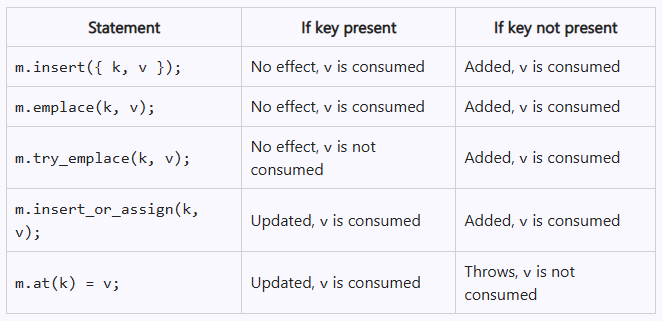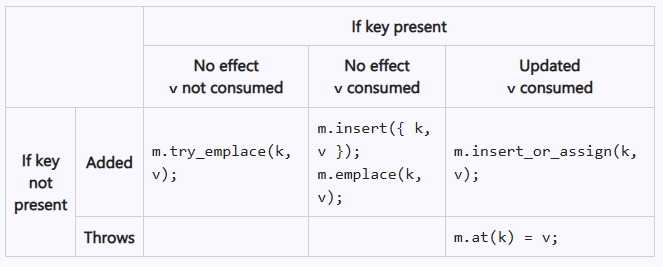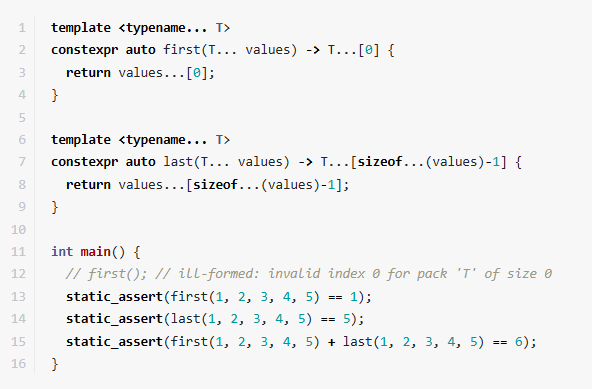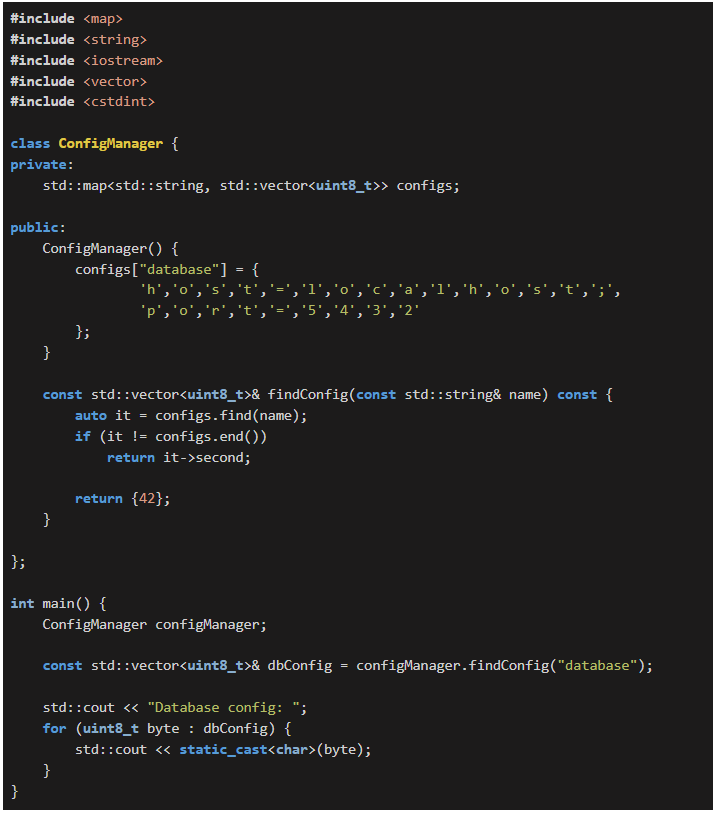The Case of the Crash When Trying to Erase an Element from a std::set -- Raymond Chen
 Today, we’ll look at a crash that occurred when trying to erase an element from a
Today, we’ll look at a crash that occurred when trying to erase an element from a std::set.
The Case of the Crash When Trying to Erase an Element from a std::set
by Raymond Chen
From the article:
rax=000001f565bc046e rbx=000001f589b20340 rcx=000001f565bc046e rdx=000000e6658feca8 rsi=000001f589b20690 rdi=000001f589b203c0 rip=00007ffdd4726bc4 rsp=000000e6658fec30 rbp=0000388a1713ab55 r8=000001f589b895d0 r9=000001f589b895d0 r10=000001f589000140 r11=0000000000000000 r12=0000000000000001 r13=000000007ffe0385 r14=0000000000000000 r15=000001f589b8f900 LitWare!std::_Tree<std::_Tset_traits<WidgetWatcher *, std::less<WidgetWatcher *>, std::allocator<WidgetWatcher *>,0> >::_Eqrange+0x14 [inlined in LitWare!std::_Tree<std::_Tset_traits< WidgetWatcher *,std::less<WidgetWatcher *>, std::allocator<WidgetWatcher *>,0> >::erase+0x18]: 00007ffd`d4726bc4 cmp byte ptr [rax+19h],r11b ds:000001f5`65bc0487=??The stack trace has some information about how we got here.
LitWare!std::_Tree<std::_Tset_traits<Widget *, std::less<Widget *>, std::allocator<Widget *>,0> >::_Eqrange+0x14 LitWare!std::_Tree<std::_Tset_traits<Widget *, std::less<Widget *>, std::allocator<Widget *>,0> >::erase+0x18 LitWare!Widget::~Widget+0xc8 LitWare!Widget::`scalar deleting destructor'+0x14 LitWare!DestroyWidget+0x15 Fabrikam!Doodad::~Doodad+0x75 Fabrikam!Doodad::`scalar deleting destructor'+0x14 Fabrikam!Doodad::Release+0x40 Contoso!Gadget::~Gadget+0x66 ucrtbase!<lambda_⟦...⟧>::operator()+0xa5 ucrtbase!__crt_seh_guarded_call<int>::operator()<⟦...⟧>+0x3b ucrtbase!__acrt_lock_and_call+0x1c ucrtbase!_execute_onexit_table+0x3d Contoso!dllmain_crt_process_detach+0x45 Contoso!dllmain_dispatch+0xe6 ntdll!LdrpCallInitRoutine+0xb0 ntdll!LdrShutdownProcess+0x260 ntdll!RtlExitUserProcess+0x114 kernel32!FatalExit+0xb ucrtbased!exit_or_terminate_process+0x3a ucrtbased!common_exit+0x85 ucrtbased!exit+0x16

 In today's post, I'll learn how modern C++ can influence the code you write for your embedded system. You will see code using up to C++23. The example I show you below circles around at least two questions I got various times from customers: What is consteval good for? What is that user-defined literal operator, and why should I care?
In today's post, I'll learn how modern C++ can influence the code you write for your embedded system. You will see code using up to C++23. The example I show you below circles around at least two questions I got various times from customers: What is consteval good for? What is that user-defined literal operator, and why should I care?


 C++26 introduces pack indexing as a core language feature, making it significantly easier to extract specific elements from parameter packs using a familiar subscript syntax. This improvement, proposed by Corentin Jabot and Pablo Halpern, eliminates the need for cumbersome workarounds like recursive templates or boolean expression tricks, providing a more intuitive and readable approach.
C++26 introduces pack indexing as a core language feature, making it significantly easier to extract specific elements from parameter packs using a familiar subscript syntax. This improvement, proposed by Corentin Jabot and Pablo Halpern, eliminates the need for cumbersome workarounds like recursive templates or boolean expression tricks, providing a more intuitive and readable approach.
 In this blog post, we’ll explore ways to improve the safety of a simple configuration manager. We’ll handle common pitfalls like dangling references and excessive stack usage. Additionally, we’ll see how C++26 helps enforce safer coding practices with stricter diagnostics and improved handling of large objects.
In this blog post, we’ll explore ways to improve the safety of a simple configuration manager. We’ll handle common pitfalls like dangling references and excessive stack usage. Additionally, we’ll see how C++26 helps enforce safer coding practices with stricter diagnostics and improved handling of large objects.